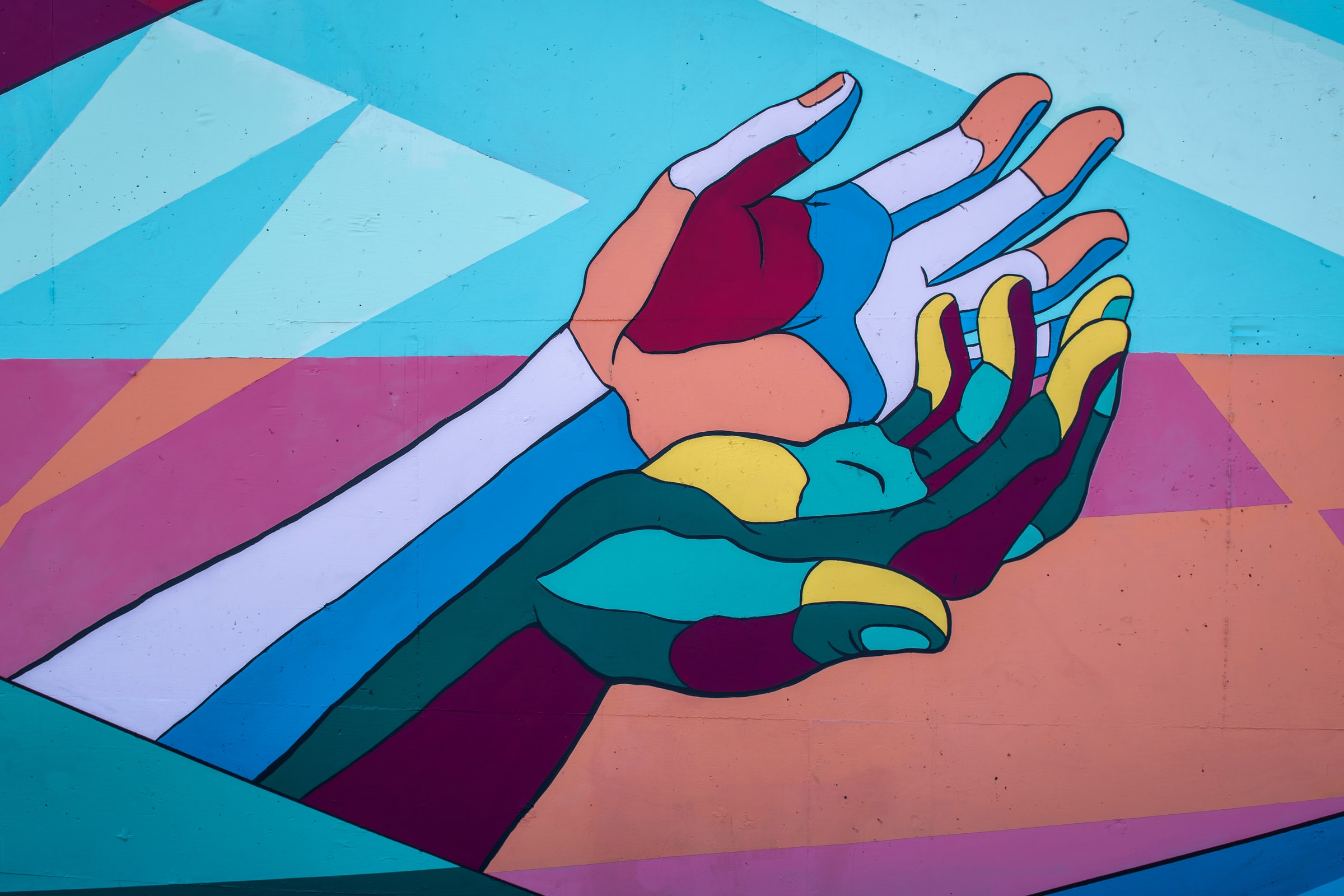Rohma Khan is a third-year student majoring in Near and Middle Eastern civilizations and double minoring in philosophy and diaspora and transnational studies, with pronouns of she/her/hers. She has been an equity officer for UTMUN and Orientation leader for SMC. She is SVEP- (Sexual Violence Education and Prevention), IAR- (Identify, Assist, and Refer) safeTALK, and LivingWorks-certified. Currently a Don!
Let’s Talk Frankly
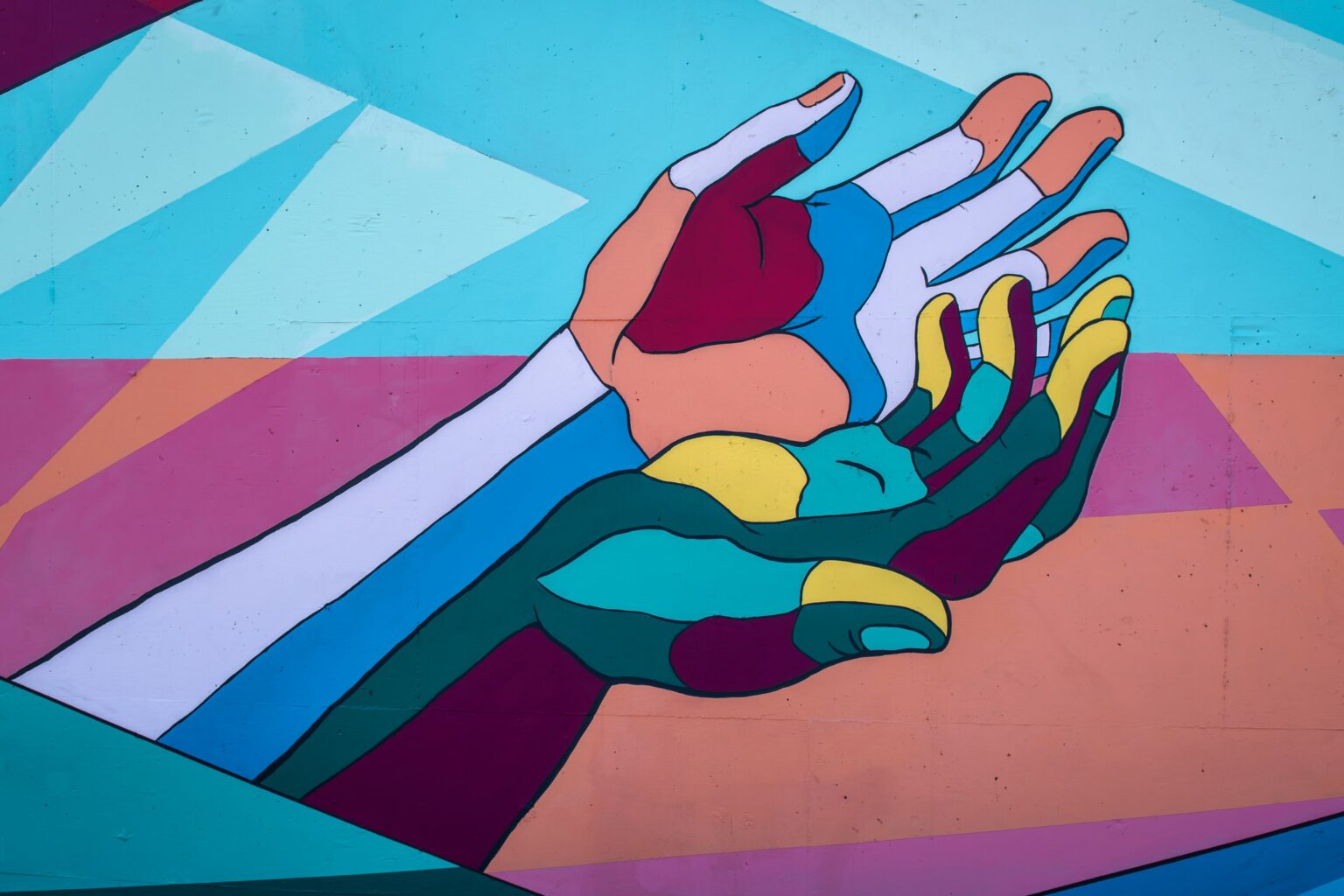
Being a Don is mostly about making sure students feel safe. It’s simple enough in theory; I attended strategizing workshops for programming, promoting inclusive attitudes, and training in suicide-prevention support. This preliminary, foundational understanding I was introduced to alongside other SMC Dons would be key in forming the safe and welcoming environment we envisioned for all SMC students. Learning the concepts and strategies in training compared to applying them in real life turned out to be quite different. I didn’t really know where to begin.
In trying to apply my training, I found myself pulling on my first-year experience to help re-orient my perspective to the potential concerns of my incoming residents. When I came to reminiscing, I realized their experience would be nothing like mine. My first semester was in person, pre-pandemic. I couldn’t relate to the added stress of living through Covid-19 whilst trying to navigate university for the first time. So I pivoted. Instead, I tried to relate to them through the general feelings of anxiety, panic, burnout, stress, and depression, all the things I felt and even continue to feel while being in school as the world confronts Covid-19.
I remember the fall semester of 2020 well: there was no confirmation of vaccine roll-outs, Toronto was going in and out of different levels of lockdowns, the politically charged American climate was starting to manifest in downtown Toronto on the streets in protests, racial and ethnic discrimination was flourishing, as it continues to today, under the umbrella of the virus, and professors re-instated online live, proctored exams, maybe in an effort to return to some state of normalcy after the previous semester ended abruptly in cancelling all exams. I had never had so many panic attacks in four months as I did that semester. Trying to keep my GPA competitive for law school applications in five courses as I worked every weekend at my part-time job while not being able to be with my support systems because of the pandemic was utterly overwhelming. What was worse was that I had internalized my state of chronic pain and thought it normal. I did not want my residents to ever feel like the situation they were in was normal; that the pandemic was normal, that their feelings of burnout and stress were normal. In fact, I want to throw away the word normal. Pain and suffering, sleep deprivation, panic and stress, malnutrition are terms that have all been so normalized in the discourses surrounding university students that the blemishes this pandemic painted on our mental health have been overlooked by both the structures and systems of academia and even ourselves as its participants. It is not enough for the conversation surrounding mental health to be augmented; it must be carefully crafted to the nuances and particularities of a given situation. It must be recognizable and relatable. It took me some time, but I did realize that feeling so horrible all the time is not right, it is not the way to live my life, it is not the way to experience meaningful education, and it is completely unfair to me.
What implementing this realization looked like for me was to have more patience with myself. Procrastination and the looming stress of deadlines for work that always seemed unfruitful would lead to last-minute stress-induced essays that would not attain the marks I expected of myself. It was a cycle. So, I began to incorporate productive procrastination in which I would allow myself to only procrastinate so long as I was doing something that truly made me happy; this looked like making a lot of chai over the semester in my room and watching a lot of Friends episodes, going for walks on campus, cleaning routinely and deeply, working out, or even dancing in my room. Suddenly, I wanted to get my work done faster because I wanted to feel free of responsibility when doing the things I enjoyed.
Another strategy that may work for some is to be kind to yourself. It is a simple idea that means more than some can stomach. For students who are trying to do four to six courses a semester and are unable to sustain their mental well-being in doing so, try re-evaluating your priorities. Is it imperative you take four courses? Does it have to be in this department that you don’t really enjoy? Does it have to be now when you are not at your best? Does it have to be here? Stress can serve as a motivator, but if you find it getting in the way of your work rather than helping it get done, there is an issue. Ultimately, this may look like lightening your workload. There is not much wiggle room here. You may need your transcript to look a certain way, and I completely sympathize with that, but you must ask yourself: at what cost? You come first. Your mental health comes first. There is no normal path to graduation or to a job. Normal does not exist because everything is susceptible to change, every obstacle you face is malleable. Plans can be re-made, can be achieved later, somewhere else, with someone else, every problem can be combatted with new strategies. There were so many opportunities for growth and experience that I couldn’t even comprehend because my mental state was forcing me to live in a rigid structure where I relived pain; my existence was stagnated. Every day I didn’t take care of myself was another day I was stuck in the cycle of harm. I wasn’t being kind to myself, expecting me to get as much done post-pandemic as I did before. Treating myself as a priority realigned my problems in a way that seemed manageable.
The greatest thing I learned in this time, which I continue to incorporate in my support to SMC students, is that community is everything. What remained steadfast for me this year was the support of the Don team. As a new Don, trying to be the kind of person I needed at my lowest for my residents seemed daunting. However, the Don team was exemplary in the care and encouragement they offered me and the students they supported. I learnt how to implement my training alongside my team as they shared with me the similar concerns they had for the community. Knowing that I was not alone in my troubles was half the battle. Checking in on one another, offering each other advice, solace, and comfort helped ease everyone’s minds in these uncertain times.
It was this key insight that made sense of all my training: I am not a trained psychologist, nor am I trained in counselling; I have no experience in being a certified mental health support of any kind, and yet it doesn’t matter. What I am is support. Just like I needed the support of my team to orient me, another may need support to guide them through their concerns. Referring students to the correct people, whether it is on-campus to the U of T wellness centre, U of T accessibility services, our SMC wellness website, the Registrar, the Assistant Dean’s office, or off-campus resources for immediate support like Good2Talk, is not necessarily always about providing an answer, it is about making sure they know they aren’t alone looking for one.
Read other InsightOut posts.
As vaccination rates go up and the possibility of in-campus classes increases, students, staff and faculty are thinking about what a transition back to campus may entail – including the mental health challenges that may accompany finding new routines for in-person learning and events.
It’s with this transition in mind that Joshua De Jesus, President of St. Mike’s Wellness Council, has worked with the club to introduce a new annual convention focused on mental health and wellness. “Dignity of the Student: Reimagining Student Leadership” begins today and will run through Sunday, July 11, with each day dedicated to a tenet of dialogue: listening, discussing, and action. The central theme of the convention is the integration of wellness into student leadership.
“Students have always had the challenge of balancing academics with their extracurriculars, but with all of this year’s extra concerns – international students concerned about flying over, students in residence thinking about how to approach living on campus, and so forth – I think we might find student leaders struggling with their own wellness,” De Jesus says. “That’s why we’re making an effort with this convention to empower student leadership and figure out how student leaders can both advocate for wellness while taking care of their own wellness.”
The convention will begin with a Day One program dedicated to “listening,” with remarks from six speakers, including St. Michael’s President David Sylvester; UofT Vice Dean, Undergraduate and former St. Michael’s Principal Randy Boyagoda; and St. Mike’s Wellness Counsellor Nicole LeBlanc. “We deliberately chose speakers representing a range of experiences and styles of leadership and engagement,” De Jesus says, in order to create a diverse context for discussion.
That discussion is the central focus for Day Two, when club members will have opportunities to reflect on the presentations while bringing forward wellness initiatives they would like to pursue in the coming academic year. Five-minute presentations will lead into conversations in which all members will be able to offer feedback and potentially their own help in carrying out the initiatives during the year.
The student-driven approach to both programming and roles within St. Mike’s Wellness Council is the product of a recent “remodeling” of the three-year-old club. Formal titles and roles were reduced to bare essentials, and students are now able to join and define their own roles and initiatives, which De Jesus sees as a means of encouraging students to bring forward their own passions and interests into their work.
“There are no ‘sitting duck’ roles,” De Jesus says. “No club member is there for a title, but each one is associated with an initiative or wellness option.” After the remodel, the club was reduced to three roles. There are now 15 students involved.
On the third day of the convention, those students will bring forward the full agreed-upon slate of initiatives for the club, announcing the actions resulting from the dialogue of the preceding days and setting a plan for the unique year ahead. De Jesus hopes that the event will become an annual occurrence, and a regular check-in on how mental health and wellness are being incorporated into the life of the college.
“Dignity of the Student: Reimagining Student Leadership” will take place from July 9 to 11.
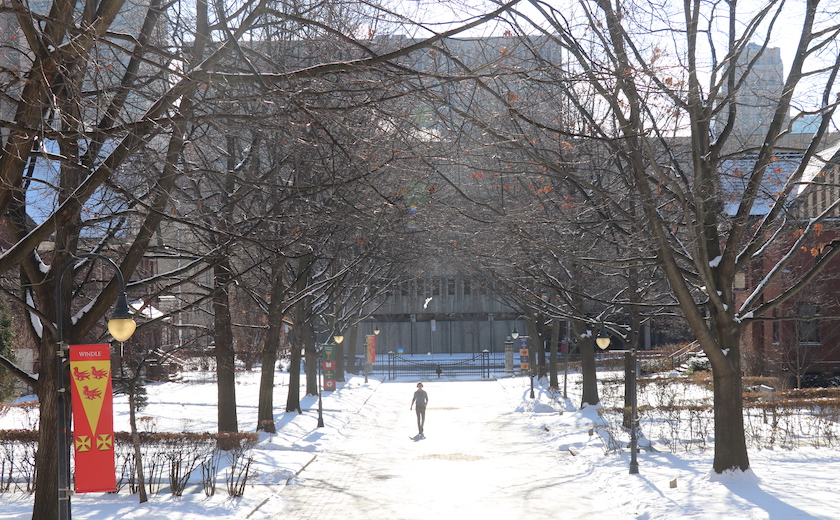
Committed to cultivating a healthy, welcoming, and supportive community, the University of St. Michael’s College works with the University of Toronto to provide a variety of resources to help students in the areas of mental health and wellness. A list of these resources can be found on the Health and Wellness Resources page.
Any student, regardless of where they are in the world, can get immediate assistance through U of T My SSP, a confidential and secure number where counsellors are available to text or speak over the phone. Good2Talk is another helpline resource available 24/7 to post-secondary students in Canada; a text-to-chat version is also available. Other phone services are available for any student who is themselves in distress or who knows someone who is.
Because of how many resources and support services are available at U of T, it can take a bit of guidance to navigate them all. The University’s mental health services site, U of T Student Life’s Health & Wellness Centre, and NAVI, a new mental health wayfinder, each helps students find services that fit their unique needs. Several topical resources provide students with targeted help in a variety of circumstances ranging from a desire to quit smoking to finding support for international students or connecting with a spiritual community.
St. Michael’s students also benefit from a variety of support services offered through the College. Wellness Counsellor Nicole LeBlanc welcomes St. Mike’s students and residents to set up a half-hour online appointment with her through email. She draws from psychodynamic, EMDR, person-centred, CBT and solution-focused therapeutic frameworks, and services are offered with complete confidentiality according to the Personal Health Information Act (PHIPA). Learn more about Nicole’s practice.
The Office of the Dean of Students makes peer-to-peer support available through the Mentorship Program, which pairs incoming students with upper-year students who can connect them to academic and wellness-focused resources, and the Commuter Don and Residence Don teams, which connect students in their constituencies to the larger St. Michael’s community. The St. Michael’s College Student Union (SMCSU) has recently voted to elect two new positions for the 2021-22 academic year: a Vice President of Mental Health and Accessibility, and a Vice President of International Community Outreach. SMCSU also provides funding for student-led groups such as St. Mike’s Wellness Council and SMC Inclusive.
The Office of the Registrar and Student Services makes available academic success learning strategists, accessibility advisors, and career educators to every St. Michael’s student. The office’s ask.smc@utoronto.ca email address provides a single point of access to these and other services through the office. For students who need help with writing papers for their classes, the John M. Kelly Library offers one-on-one appointments through the Writing Centre. More focused research assistance is also available.
The author of our post for Bell Let’s Talk Day 2021, Therese Hassan completed both her undergraduate and graduate degrees at the University of St. Michael’s College. A recent graduate from the Master of Theological Studies program at the Faculty of Theology, she is particularly interested in Catholic philosophy of education, theology of ministry, and qualitative methods in religious studies. Therese is currently a Secondary School teacher with the Dufferin-Peel Catholic District School Board.
Talking About Fight Club to Stay Healthy

I recently assigned my students an adaptation of a “time audit” activity that Jay Shetty offers in his book Think Like a Monk. The premise of the exercise was that what we spend most of our time on essentially reflects what we value most. The idea was for my students to audit their time over five days to identify where most of their time was being spent. My students had to articulate what it is they truly value and whether or not the way they spent their time (especially amid a pandemic) truly reflected what they valued most. For most students, the realization set in that how they spent their time was disproportionate to what they outlined they truly valued.
As I listened to my students’ reflections on their time audit, several patterns emerged. Many of my students identified having valued their mental health but recognized that the way they spent their time did not necessarily foster positive mental health. Many voiced an intention to carve out more time in the day to spend on activities that would benefit their mental health, including less time on social media, more time meditating and praying, and more time being present with family (I know: amazing conclusions, right?). Interestingly, almost all of them felt guilty to some degree about not doing more with their time, considering the time at home the pandemic has granted. On this point, I could relate to my students more than they will ever know.
The truth is that the conclusions my students came to as a result of their time audit are as intuitive as they are appropriate to the unprecedented time we find ourselves in. As their teacher, I am essentially endowed with the responsibility to keep considerate of their mental health, offer information and resources on how to cope and who to talk to, and tips and tools in practicing self-care, all while standing as a pillar of poise, a model of “keeping it together,” a standard of composure even though I too share in the same struggle. It’s like having to prepare my students for a test I’ve never taken myself, in an area I haven’t yet achieved a level of expertise. Put all that against the backdrop of a pandemic, and it feels more like a fight; only it’s a fight I didn’t ever think I’d need to prepare for, let alone be responsible for in preparing others. I’m right there in the ring with everyone else trying to listen to coaching instructions.
Of course, I could never say this out loud. The first rule of fight club is you cannot talk about the fight club. If I talk about my struggle in the fight club, how can anyone find me dependable or reliable? What if I am seen as any less of a Professional? How do I continue to meet the needs of my students, friends, or family members in supporting their mental health while staying afloat myself? How do I talk about self-care amid a pandemic when I’m still trying to figure out a routine that works for me? How do I help the people around me continue to feel connected despite struggling from isolation and confinement myself?
Mental health is something for all of us to be concerned about. One of the most significant personal revelations I ever had on the topic was to learn that mental health and mental illness are not synonymous concepts but rather interconnected concepts that each span their own continuum. This means that not everyone with mental illness has bad mental health, and an absence of mental illness does not necessarily mean good mental health. There’s a line in Amanda Gorman’s poem The Hill We Climb where she talks about the nation before her as not a broken nation, but an unfinished one. Similarly, mental illness or the struggle with mental health doesn’t make us broken, but unfinished, a work in constant progress. Trying to work towards positive mental health is a struggle to be met by everyone at one point or the other. Meeting the expectations of self-care can and probably does feel near impossible with or without a pandemic. For that reason, we are literally all in it together even when we feel completely alone.
Despite it all, I am still trying to do it all. People depend on me. I am sure that many out there are doing the same thing, persisting and persevering because people count on them. If there is one thing I have learned, it is that, for whatever reason, knowing I’m not alone in the ring is a comforting thing. Storytelling is a magical device we have that dates back as far as the human community itself. Testimony and dialogue help us confront some of the harsh realities of the human condition at its deepest level, inviting us into a journey of “meaning-making” as we bear witness to the stories and experiences of those around us. If there is one thing I can say for sure, it’s that we need to feel empowered and empower others by and through witness and storytelling regarding our experiences and struggles with and of mental health. We need to normalize talking about this regardless of rank, position, gender, age, or creed.
They said that the first rule of fight club is to never talk about the fight club. Well, this is our fight club, and mental health is our ring. Whether one is giving or receiving support in dealing with mental health, we’re all in the ring, a human make-up of grace under pressure, each of us hoping that we or the ones we love can and will persevere through each second of every minute of every round. One of my own coaches from the ring often reminds me that, in our fight, we strive not to be perfect but to be balanced; constantly adjusting our footing to be as close to the centre point of love, family, friends, respect and humanity. We may sway, but we adjust, and we never fall completely.
And so, to that I say: screw the rules of fight club. Let’s talk about fight club. Let’s reflect on our own stories deeply and honestly. Let’s share our testimonies and open our hearts to the testimonies of others. In a time characterized by physical and social distance, let our stories and experiences of being inside the ring connect us like never before. Let’s talk not just one day a year but consistently and intentionally, because our lives depend on it.
Read other InsightOut posts.
Principal Randy Boyagoda is happy to offer credit for St. Mike’s new first-term check-in program where it’s due: with the students themselves.
The program, which offers students the opportunity to be matched up with professors to chat about adjusting to university life, is the result of an idea brought to the Principal’s Office by SMCSU, St. Mike’s student union.
With concerns over student mental health continuing to make headlines across the country, touching everyone from parents and professors to roommates and friends, Professor Boyagoda says he was pleased when a group of students approached him last spring to ask what St. Mike’s was doing to promote mental health.
“A delegation from the Student Life committee met with me and wanted to know what was being done locally,” he recalls. “They asked what St. Mike’s could do to respond. The challenge came from students.”
In ensuing discussions about what causes students worry or distress, one of the issues that came to light was students’ anxiety over meeting with professors, an experience that is pretty much unavoidable over the course of four years of a post-secondary education.
“Students were telling us they felt intimidated. Our goal was the humanize the relationship,“ he says.
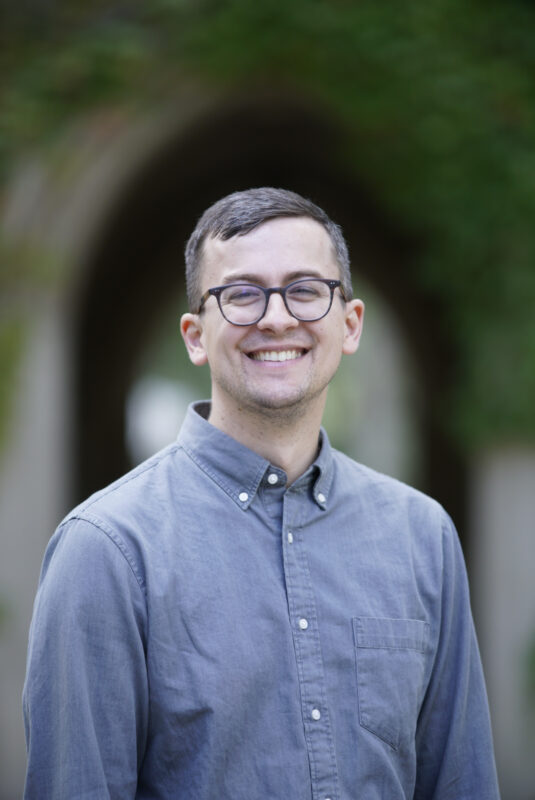
Working to overcome that challenge seemed like a good – and feasible – first step, and so the first-year check-in idea took root with the goal of normalizing professor-student meetings.
A quick survey of professors – both at St. Mike’s as well as fellows associated with St. Mike’s – indicated a great willingness to help, and the program was launched to success this past fall. The University of Toronto has taken notice of the program and is considering broader applications, Professor Boyagoda notes.
“This program is not about course advising. It is totally voluntary, and student-centred,” he says.
First-year student Lisa-marie Lofty took advantage of the new program, and says she found the opportunity to chat with Dr. Felan Parker helpful as she adjusted to life at St. Mike’s.
“We met early in the semester as I was still thinking about courses and we had a friendly conversation about things to consider as the year went on,” she recalled.
As someone who had attended boarding school four hours outside of Nairobi and was drawn to U of T in part because of the appeal of a big city, it was nice, once here, to have another friendly face to relate to, especially as Dr. Parker told her a bit about his own experiences as a student.
Mathematics professor and St. Mike’s fellow Dr. Mary Pugh also participated in the program after a student contacted her. She says the main message she conveyed was that the student could contact her at any time.
The program “gives students access to a disinterested/non-judgmental person who’s well-familiar with the Faculty of Arts & Science and its classes and programs; someone who can treat them like a human and offer support/advice if needed,” Dr. Pugh says.
As helpful as the program is proving to be for students, it is also proving to be educational for professors as well.
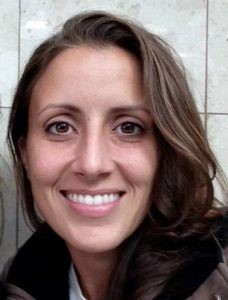
“Because I usually teach upper-year courses, I haven’t had much interaction with first-year students,” says Dr. Parker, who teaches in St. Mike’s Book and Media Studies program. “Contrary to popular myth, I’ve found that they are the opposite of entitled, frequently apologizing for asking for help and uncertain of what kind of support is available. My hope is that the first-year check-ins, along with other initiatives like the first-year foundations seminars, will help show students that we are here to help.”
Social worker Nicole LeBlanc, St. Mike’s in-house wellness counsellor, says first-year students can experience anxiety for a number of reasons. Everything from worry over marks and making friends through to loneliness and being far from home can make students feel anxious or depressed – or both.
“Students face a lot of pressure these days, whether it’s competition to get into graduate programs or wanting to please parents, or worry over expenses. Add in relational issues – the rules of engagement over dating and friendships, for example – and it can be very challenging,” she says. “Many students are going from being a big fish in a little pond to a little fish in a very big pond, no longer having the top marks or profile they might have had in high school. It’s a shock to the system.”
“Be open and honest,” she says when asked what others can do to help. “Tell the person that you notice a change, and let them know that you care. You can suggest counselling or a doctor. Destigmatizing mental illness is very important.”
LeBlanc offers one-on-one counselling for St. Michael’s students, and notes that all it takes is an email or call to set up an initial appointment with her. She finds that a significant part of her role is letting students know what services are available, whether it’s academic help via the writing centre or learning strategist, social support from places like the Centre for International Experience, a referral to the Health and Wellness Centre at the University of Toronto for medical issues, or friendly encouragement to take advantage of on-campus activities offered through St. Mike’s Student Life.
If you or someone you know is in distress, you can call:
- Canada Suicide Prevention Service phone available 24/7 at 1-833-456-4566
- Good 2 Talk Student Helpline at 1-866-925-5454
- Ontario Mental Health Helpline at 1-866-531-2600
- Gerstein Centre Crisis Line at 416-929-5200
- U of T Health & Wellness Centre at 416-978-8030.

